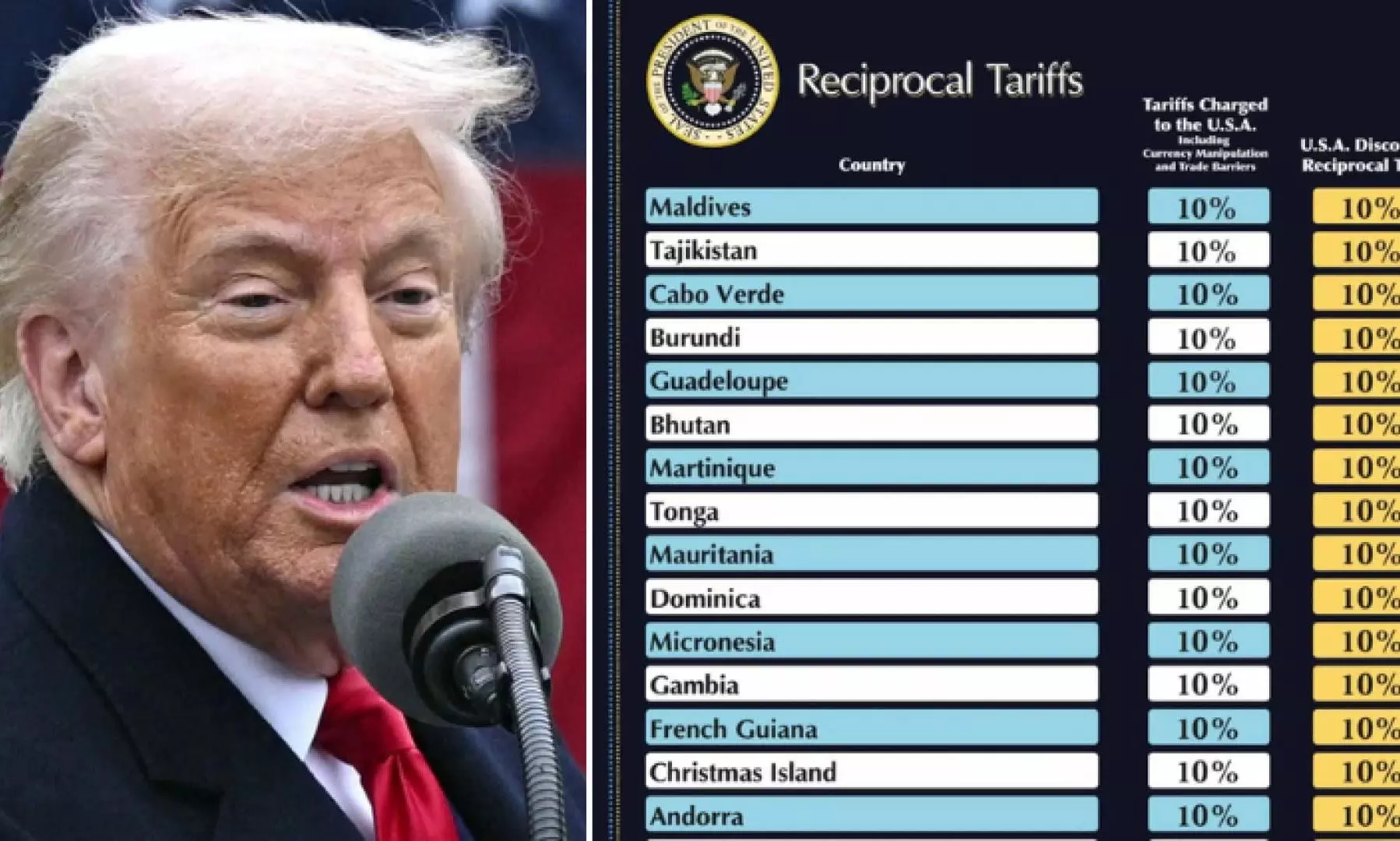
Trump’s tariffs deepen UK recession fears as growth stalls
text_fieldsBy George Callaghan
British economic growth is anaemic. Inflation is 2%. Unemployment is very low at 3%. That is partly because millions of Britons refuse to work. They claim to be too depressed to work or to suffer from other ailments – mostly psychological. The UK has millions of adults of working age who are permanently on benefits. This is a drag on the economy. Working people have to pay out for parasites.
Trump’s tariffs on the United Kingdom are 10%. This is the lowest level that he has imposed. Fortunately for the British, President Trump has a soft spot for his mother’s birthplace.
The United Kingdom faces several serious economic headaches. The Government has launched ambitious programmes to build more houses, to transition to green energy and to improve transport. This is all very costly and national debt is at its highest since 1945.
The Labour Party won the election in 2024. Labour has increased taxes sharply. This is deeply unpopular and has slowed economic growth. Labour’s fiscal plan was based on the economy growing to allow the government more revenue with which to fund its projects. That is now pie in the sky.
The United Kingdom has made it more difficult to obtain student visas. Students are no longer allowed to bring a spouse and minor children with them. This has drastically reduced the number of students coming to the United Kingdom. Some cities in the UK are very dependent on their university. In Durham 30% of people work for Durham University and most of the rest are students. If the university shuts down so does the city.
The economic outlook is far from rosy. The Trump tariffs have made a recession in 2025 almost unavoidable. The only question is the duration and severity of this recession.
The UK has not announced tariffs on US imports in retaliation for the Trump tariffs. But it is probable that the United Kingdom will riposte that way. The tariffs imposed might not be symmetrical. London would like to negotiate an agreement with the US to scrap tariffs altogether. But that might include allowing chlorine washed chicken into the United Kingdom. That would prove very unpopular because many British people believe it is shockingly unhealthy.
Sir Keir Starmer, the British Prime Minister, is an unemotional and almost bloodless man. He is cautious and undemonstrative. He has so far said little about the British response to US tariffs.
The Labour Government lambasted the Conservatives for austerity when the Conservatives were in office. But Labour might be obliged to introduce austerity measures. Labour has already cut spending on welfare. This has enraged the far left. Labour has the underclass (those permanently on welfare payments) as its payroll vote. For once Labour has put country before party. But they shall pay dearly for it at the polls.
Aviation is the only ray of hope on the horizon for the United Kingdom. Labour has already greenlit the expansion of two airports: London Gatwick Airport and London Luton Airport. The United Kingdom’s premier airport is London Heathrow. For three decades arguments have been bruited about whether there oughtt to be a third runway at Heathrow. It looks very likely that the government will authorise it. This will enrage environmentalists.
Labour will lose support to the Green Party. The Green Party is an extreme left wing party that is fixated with ecology.
The UK has been making headway on renewable energy for decades. The expansion of windfarms was the one success story of the Conservative years 2010-24. Labour has eased restrictions on onshore wind. The United Kingdom is looking forward to a lot more clean energy. The trouble is that it is expensive in the short term. Moreover, undersea cables are vulnerable to Russian sabotage.
The next General Election will be in 2029 at the latest. If things are going well in 2028 the Labour Government will probably call an early election. It is likely that Labour will win narrowly. But Labour will lose some votes but probably few seats to the Greens who are further left.


















